Search
Search Results
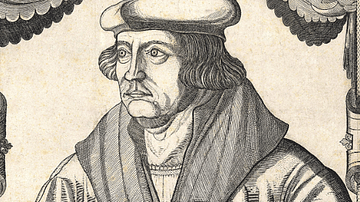
Definition
Johann Eck
Johann Eck (l. 1486-1543) was a Catholic theologian and writer best known for his disputations with Martin Luther (l. 1483-1546) beginning in 1517 and continuing until his death in 1543. Eck maintained the position that, if anyone could determine...
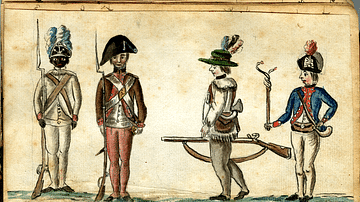
Definition
1st Rhode Island Regiment
The 1st Rhode Island Regiment, also known as Varnum's Regiment or the Black Regiment, was a regiment of the Continental Army during the American Revolutionary War (1775-1783). It was notable for being the first American military unit to consist...
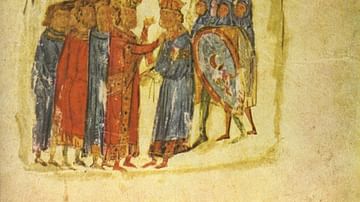
Definition
Nikephoros I
Nikephoros I ruled as emperor of the Byzantine Empire from 802 to 811 CE. A former finance minister who did much to improve the state economy, Nikephoros was not particularly popular with the empire's overtaxed peasants and overregulated...
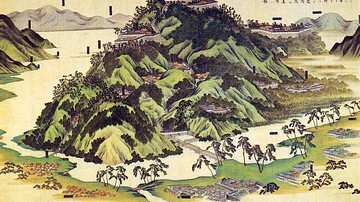
Article
Feudalism in Medieval Japan
Feudalism in medieval Japan (1185-1603) is the relationship between lords and vassals where land ownership and its use were exchanged for military service and loyalty. Although present earlier to some degree, the feudal system in Japan was...

Article
Constantine’s Conversion to Christianity
Constantine I (Flavius Valerius Constantinus) was Roman emperor from 306-337 CE and is known to history as Constantine the Great for his conversion to Christianity in 312 CE and his subsequent Christianization of the Roman Empire. His conversion...

Article
Caesar As Dictator: His Impact on the City of Rome
Gaius Julius Caesar (100-44 BCE) first assumed the role of dictator in 49 BCE, however, once he had secured his election as consul for the following year, he resigned after 11 days. After defeating Pompey at the Battle of Pharsalus in 48...
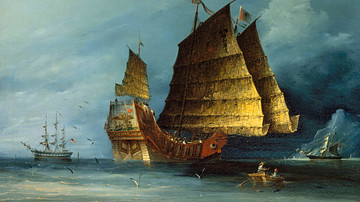
Article
The Seven Voyages of Zheng He
Admiral Zheng He (aka Cheng Ho, c. 1371-1433 CE) was a Chinese Muslim eunuch explorer who was sent by the Ming dynasty emperor Yongle (r. 1403-1424 CE) on seven diplomatic missions to increase trade and secure tribute from foreign powers...

Article
Ancestor Worship in Ancient China
Ancestor worship in ancient China dates back to the Neolithic period, and it would prove to be the most popular and enduring Chinese religious practice, lasting well into modern times. The family was always an important concept in Chinese...
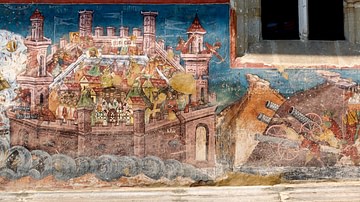
Article
1453: The Fall of Constantinople
The city of Constantinople (modern Istanbul) was founded by Roman emperor Constantine I in 324 CE and it acted as the capital of the Eastern Roman Empire, or Byzantine Empire as it has later become known, for well over 1,000 years. Although...
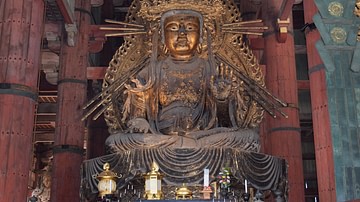
Article
Buddhism in Ancient Japan
Buddhism was introduced to ancient Japan via Korea in the 6th century CE with various sects following in subsequent centuries via China. It was readily accepted by both the elite and ordinary populace because it confirmed the political and...